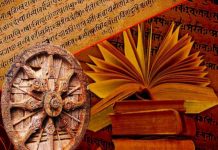This article is written by Miss Srestha Nandy, pursuing B.B.A.LL.B(Hons.) from IMS UNISON UNIVERSITY, Dehradun. This is an exhaustive article which deals with the context of the execution of a will under various Indian Laws.
Table of Contents
Overview
Under the works of the executor, a major aspect can be regarded as that, this individual does all the works done by a trustee, agent, administrator, testator, etc. But precisely considering the legal aspect, the executors’ responsibility lies in the execution of a will. In this article, there are instances framed that distinctly show the qualifications, duties, powers, procedures, etc that are included with the works of the executor. Also, here an important judgment and the case details will be analysed so as to get a knowledge of the real scenario, and how the execution works in the real world with the legal frameworks.
Who is an executor?
An executor in the context of law is the individual who deals or handles the execution of the words framed in the will of a person. An executor can also be fascinated as a personal representative in simpler words. In this designation, one is officially honoured and respected with faith in one’s integrity and organizational skills. In respect of civil law, the person who performs the duties of the executor is termed as “haeres testamentarius”. In the majority of the cases, the executor deals with the issues related to the estates, or the testaments prepared by the person at present who is dead. It is the legal duty to ensure the desires that are expressed are to be carried out accordingly. The other responsibilities include gathering up and protecting the assets of the estate, obtaining information concerning all beneficiaries named in the will and any other potential heirs, collecting and arranging for payment of debts of the estate, approving or disapproving creditor’s claims, making sure estate taxes are calculated, forms filed, and tax payments made, and in all ways assist the attorney for the estate.
Many individuals belonging to non-legal professional fields deal with the issues of estate and property, but it is not always what it seems to be. Of course, these people are inexperienced in interpretation, unlike legal professionals. Favouring these unprofessional individual circumstances gets complicated if the will is no longer current, the assets of the deceased are hard to locate, or the will is contested.
Who is eligible to be an executor?
- The executor appointed should be major, must have completed 18 years of age.
- The executor must be of sound mind.
- In case the original executor denies to fulfil the duties, a substitute executor shall be appointed.
- It shall be noted that an executor to be appointed must be a beneficiary to the will of the third person, in case any dispute arises.
- It shall be made aware to the executor that in case of any errors one shall be liable even if one has done in good faith.
But nothing, in words and certificates, makes a wise executor. The one who understands the laws holds the knowledge to execute laws, effectively and efficiently and never steps back to take the stand, where the individual thinks it’s necessary. The first and foremost initiative while dealing with a case is the proper knowledge of the facts that are mentioned in the will. The intelligent step is to get access to the original document of the will or at least the draft of the will. The execution of the activities is believed to be a time-consuming practice. So the individual who has proper time management knowledge is the one fit for the job. Another demerit takes the stand of the testator that he or she has the right to change the executors throughout one’s lifetime. So in this regard, this aspect stands as a challenge for the executor to convince the testator that he is the perfect fit for this job with proper interpretation tactics and timing commitments. It would be also wise for the executor if he keeps a record of the important documents or copies of the essential documents. Essential documents may include the proper record of the assets and debts, investments, insurance policies, etc. In case one may not have the reach to the documents, then one should know where the originals are kept and how to access them in the absence of the testator. The scene of the executor comes into action, officially when the testator expires. The workload comprises locating and filing the will, clearing probate, managing assets, clearing debts, submitting tax returns, establishing and managing any trusts, responding to legal challenges, and more. Being an executor requires you to carry out the details of the will and comply with legal requirements. Laws are framed in favor of the executor’s payment, to this the fee can also be determined by the probate judge. In case of any unusual works also involved like selling off personal property or managing litigation on behalf of the estate, the testator holds the duty to make the arrangements favoring the clear payments of the executor, he also holds a right that he may mention in the will itself that how the payments are to be done in his absence.
What are the responsibilities of an executor or legatee?
- The executor will take the responsibility for the meeting of the funeral expenses from the estate only left by the testator.
- The executor shall obtain the death certificate of the testator.
- Interpretation of the will in the right manner and distribution of assets to the correct beneficiary shall be done by the executor only.
- It will be the responsibility of the executor for drawing up an inventory of the assets to be sold or disposed of.
- The executor shall undergo the expense management for all the properties until the disposal of the same.
- Applying for probate as it is the official evidence of the executor’s authority, also who is responsible for applying, where probate is mandated by law.
- The executor shall undergo the settlement of assets as directed in the will.
- The executor shall take care of the payments of money that are due from the testator or collecting money due to the testator.
- The executor shall maintain the records of all transactions.
- The executor shall represent the testator in any legal action (excluding criminal and defamatory matters) on the behalf of the deceased
Powers of an executor
- Power to apply the income of the estate for the benefit and maintenance of young beneficiaries and to use the capital for their benefits: this is particularly useful when the testator passed away with young children as dependents, and the executor can look after the children and pay for expenses, such as school fees.
- Power to invest the estate to generate income for the benefits of the estate, however, such power should be exercised with caution in order not to breach the executor’s duties to the beneficiaries.
- Power to appoint an agent, a nominee, and or a custodian about assets of a trust. This enables the executor to appoint professionals; such as investment managers or stockbrokers – to manage the estate.
What is a will?
Will is nothing but a document, made by a testator, who mentions the instructions according to his desires regarding his estates including the directions on how onwards that are to be dealt with after the death of the testator. In simpler words, a will is an instrument that permits a person to make decisions on how his estates are to be managed and distributed after his death. A will offers an opportunity to decide one’s beneficiaries protecting their interest, instead of including any third party to play the role of administrator. A will can be included in a vast sense, it has a wide scope under family law (Hindu and Muslim law), Indian Succession Act 1925. Broadly speaking will be of various types, out of all there are three special types of wills:
- Holographic will: It is fully handwritten and signed by the testator.
- Nuncupative will: It is made at the time of the testator’s expectation of imminent death, it is an oral will.
- Soldiers’ and Sailors’ will: These are the wills made by the sailors and soldiers and these wills have relaxations on the executions while active on military duty and at sea. These wills can be both oral and handwritten.
Process of executing a will
At the time of making the will, there are some requirements. These include two competent witnesses and of course the beneficiaries cannot act as witnesses at the same time while the execution of the same will. The other requirements include an executor, the will deed. The essential part of the execution is the signing of the testator or if that won’t be available then the thumbprint makes it easier and also it helps in the cases of those persons who are uneducated or illiterate. Another essential aspect is the testator’s intent, here the will shall be made upon bonafide intention without any fraud, undue influence, or mistake. In case it gets proved that the will got executed under unlawful grounds then it would be declared as void. Regarding both the cases, the executor and the testator must be competent. Another context of probate is mandatory for the execution of the will. Probate can be defined as the certified copy of the will under the seal of the court with competent jurisdiction. This establishes and authenticates the will finally.
How does an executor execute the will?
The executor has to make an application to the court, for the issue of probate. The executor has to attach the original will with the application. In the application, the executor has to mention the names and addresses of the legal heirs of the deceased, so that notice can be issued to them before the will is probated.
Important judgment
Kavita Kanwar v. Mrs. Pamela Mehta & Ors
This case was filed in the year 2017, and recently in the year 2020, the verdict was passed by the Honorable Supreme Court and this is to be considered as the exhaustive judgment, on the debatable issues on the execution of will and grant of probate in the matters of testamentary succession. The case deals with suspicious circumstances in favour of invalidating a will. A circumstance is considered to be suspicious when it is not normal or involves unexpected facts or occurring etc. such as shaky or doubtful signatures, uncertain mind of the testator, etc.
Facts of the case
The appellant (a major beneficiary) who lost in both the trial court and the High Court, whereby the will of the mother (testator), propounded by the appellant herself as the executor, was doubted. Under this two-page will, the appellant as mentioned is the major beneficiary of the estate of the testator to the exclusion of other legal heirs, namely one widowed sister and a brother (the respondents).
Interestingly and also legally, the property in question whose actual owner was the father came to the mother. But during his lifetime, he had already gifted a portion of the original property to the appellant which was later not considered in the will. It was for the other remaining portions of the same property that the disputed will was formulated.
Another important aspect of the matter was that the will was partly holographic. Holographic wills are those wills that were handwritten by the testator himself. This will was framed in such a manner where the first and the last portions of the will were written by hand by the testator and the rest of the portions, which dealt with the devolvement of the property, were typed and printed.
Evidence placed before the court
After the assessment of the evidence by the trial court and the High Court, the following facts popped up out of evidence led by the parties. First, the relations between the testator’s mother and the respondents were hospitable, or in simple words, they share a warm friendly bond. It was shown that the mother had no complaints with the respondents, one of which had taken good care of her. Second, due to personal reasons, the mother was unable to complete her education beyond Class X and holds zero knowledge regarding the computer and how to operate it. Third, the will had certain portions involving the phases of technical and legal jargon that could be understood by a legal practitioner or someone who is experienced and holds knowledge in the legal aspects. Fourth, which can add curiosities to the minds where the appellant was unable to explain why the will was partly holographic, while certain parts were typed out. Fifth, it was found that the testimony of the appellant stating that she had not participated in the execution of the will was not true and contradictory. It appeared that the appellant, contrary to her evidence and pleadings, had played a vital role in the execution of the will. Lastly, the court found no credibility in the testimony of the attesting witnesses, as the daughter of one witness had borrowed money from the appellant and the other was utterly unknown to the testator.
Curiously, the court also found that though the appellant had not accepted the presence of the third page of the will in the trial court before the appeal went to the High Court, she did a volte-face or in a simple language, she changed her opinion and relied on the third page to disseminate the evidence of suspicious circumstances.
Judgment
The apex court, after diligently analyzing the evidence led by the parties and the law on the subject, dismissed the appeal as it found that “thick clouds of suspicious circumstances are hovering over the will in question”.
The court said that broadly, it is the decision of these questions which will determine the question of proof of wills. Though the propounder is not expected to prove the will by mathematical certainty and only has to show the execution in terms of the essential statutory requirements under the Act, in the presence of suspicious circumstances, the court would naturally expect that all legitimate suspicion should be completely removed before the document is accepted as the last will of the testator.
Conclusion
Will or in the terms of Muslim law ‘Wasiyat’ holds so many activities with proper execution framings and especially its existence do affect the lives of the people directly or indirectly attached to the maker of the will. Without a will, the complications arise, and the state comes to action along with many legal frameworks and formalities regarding the disposal of the properties. But, unfortunately, there does exist a larger portion of society that does not utilize this privilege and die without making a will. So provisions should be made to spread the knowledge regarding the context of the will to every corner of the society especially to the rural areas, where there are elders who may not be educated but at least legal aids should be provided to them so that they could understand this law and help themselves to consume the privilege.
References
- https://www.aag.com/articles/finance/executor-of-will/
- https://legal-dictionary.thefreedictionary.com/executor
- https://www.investopedia.com/articles/pf/11/before-becoming-an-executor.asp
- https://cleartax.in/s/duties-and-responsibilities-of-will-executor
- https://housing.com/news/probate-will/#:~:text=’Probate’%20means%20the%20copy%20of,generally%20named%20in%20the%20Will.
- https://www.barandbench.com/columns/the-arduous-task-of-proving-a-will-in-court-supreme-court-on-suspicious-circumstances#:~:text=The%20Supreme%20Court%20of%20India,Mrs%20Pamela%20Mehta%20%26%20Others
LawSikho has created a telegram group for exchanging legal knowledge, referrals and various opportunities. You can click on this link and join:
 Serato DJ Crack 2025Serato DJ PRO Crack
Serato DJ Crack 2025Serato DJ PRO Crack











 Allow notifications
Allow notifications


